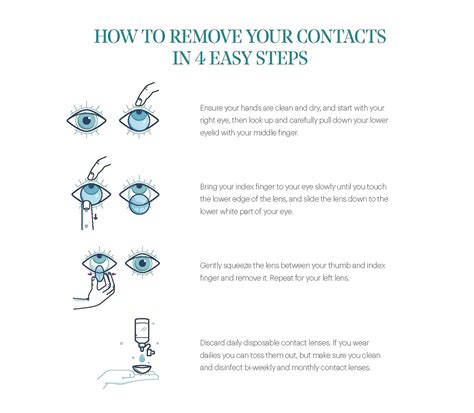Prevent Infection: Safely Removing a Lost Contact Lens
Losing a contact lens in your eye can be a stressful experience, but acting quickly and calmly is crucial to preventing potential infection. This article guides you through the safe removal process, addressing common concerns and misconceptions. Remember, always prioritize your eye health. If you experience any persistent discomfort or vision changes, seek immediate professional help from an ophthalmologist or optometrist.
What to Do If You Can't Find Your Contact Lens
First, stay calm. Panicking will only make the situation worse. The first step is to try and locate the lens. Good lighting is your friend. Use a mirror and examine your eye carefully. Sometimes, the lens is simply resting on the white part of your eye (sclera) and is easily visible.
If you still can't find it, gently close your eyelids and try to feel around with a clean fingertip. Avoid rubbing your eye, which could scratch your cornea or push the lens further in.
How to Remove a Lost Contact Lens
If you locate the lens:
- Clean your hands thoroughly: Wash your hands with soap and water, then rinse and dry them completely. This prevents introducing bacteria into your eye.
- Gently pull down your lower eyelid: This gives you better access to the lens.
- Use a clean fingertip: Carefully try to dislodge the lens. If you can't reach it easily, try pulling your upper eyelid upward slightly.
- Remove the lens: Once you have a good grip, gently remove the lens. Avoid scratching your eye.
If you can't remove the lens yourself:
- Seek professional help: Do not attempt to force the lens out. Contact your ophthalmologist or optometrist immediately. They have the tools and expertise to remove it safely without causing damage. Delaying professional help can increase the risk of infection.
What if the Lens is Stuck Under the Eyelid?
This is a common concern. Do not attempt to dig around under your eyelid with your fingers. This is dangerous and could seriously injure your eye. Instead, gently try pulling your upper and lower eyelids away from each other. Sometimes, this will dislodge the lens. If not, contact your eye doctor.
How to Prevent Infection After Losing a Contact Lens
Even after successful removal, taking preventative measures is crucial:
- Wash your hands: Thoroughly wash your hands before and after handling your eyes.
- Use eye drops (if recommended by your doctor): Your doctor may recommend lubricating eye drops to soothe any irritation.
- Monitor for signs of infection: Keep a close watch for any redness, pain, swelling, blurred vision, or excessive tearing. These are signs of potential infection and require immediate medical attention.
- Replace your contact lens solution: Change your contact lens case and solution regularly to prevent bacterial buildup.
Is it Dangerous to Leave a Contact Lens in Your Eye?
Yes, leaving a contact lens in your eye for an extended period can be dangerous. It can lead to:
- Corneal abrasion: The lens can scratch the cornea, leading to discomfort and potential infection.
- Corneal ulcer: A more serious condition that requires immediate medical attention.
- Infection: Bacteria trapped between the lens and your eye can cause serious infections.
Never sleep in your contact lenses unless specifically instructed by your eye doctor.
What if I Can't Find the Lens After Several Hours?
If you can't locate the lens after a thorough search and gentle attempts at removal, don't delay seeking professional help. The longer the lens remains in your eye, the higher the risk of infection and complications.
Can a Lost Contact Lens Cause Blindness?
While unlikely, severe complications from a lost contact lens can, in rare cases, lead to vision problems. Prompt removal and attention to signs of infection are crucial to prevent such serious outcomes. The risk is significantly reduced by seeking professional help if you are unable to remove the lens yourself.
Remember, prevention is key. Handle your contact lenses with care, and always prioritize your eye health. If you have any doubts or concerns, consult your ophthalmologist or optometrist. They are the best resource for personalized advice and treatment.

